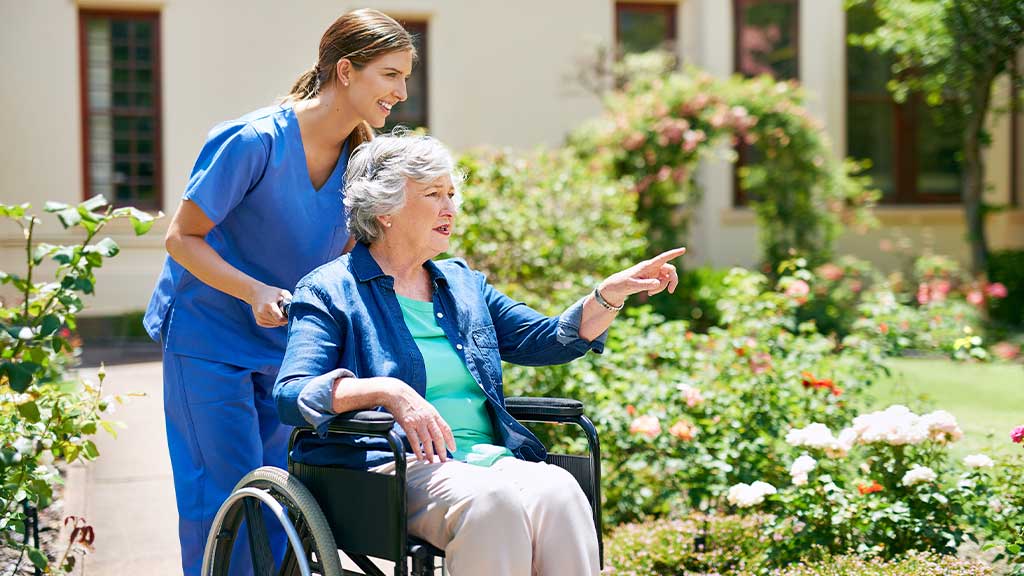Looking at the distinctive features of caretaker vs caregiver is something most family members consider. Virtually everyone can show affection and concern for others once they are born. It is a natural element of being a nurturing person. While it comes readily to most people, it can be difficult for some. When someone you care about is in need, there is frequently an instinctive urge to lend a hand.
Despite their apparent similarities, caregiving and taking care of others differ greatly. The terms “caregiver” and “caretaker” both refer to “a person who provides care and attention,” even though the phrases “to give” and “to take” denote conflicting acts.
You have the option of being both a caretaker and a caregiver. Your caretaker vs caregiver personality might greatly impact how you handle your caregiving responsibilities. Although these two names are frequently used to refer to the same thing, there are several key distinctions between them that we will discuss in this article.
Who is a caregiver?
What does a caregiver do? A caregiver is typically someone who looks after or supports another. This could result from several factors, such as a disease, an accident, a disability, or an older person.
In addition to having caregiving courses and skills for a particular disabled person, friends, and family members can also be caregivers. They may be professional physical therapists, health workers, or nurses.
For people who don’t want to reside in a facility, caregivers can offer “care taker at home” services. They can stay in their homes thanks to this long-term care alternative. Individuals who need care can have a healthcare facilitator live on their property or visit them regularly. A disabled person is less likely to become stressed out and come into contact with the germs that regularly infest live-in care facilities when in the security and comfort of their home.

Setting boundaries enables the caregiver to protect themselves and avoid being taken advantage of while providing care. Payment or other forms of reward are typically not anticipated by family caregivers. They let the person make their own judgments and don’t meddle in their private affairs.
Who is a caretaker?
Is there a caretaker definition in healthcare? As a caregiver, you could easily transition into caretaking, which creates a tense and poisonous relationship. A caregiver can be distinguished from a caretaker by establishing clear boundaries. While they are away, caregiving can lead to codependency, which is a bad behavior.
It is simple for the caretaker’s objectives to discreetly take precedence, which can result in unmet expectations and harm an otherwise positive relationship. Instead of achieving the desired result, providing care may endanger both the caregiver and the recipient.
Caregiver commitment is not motivated by compassion. Instead, they are motivated by desire and deprivation, which creates a supportive environment. People are dependent on the caretaker because they are not responsible for their behaviors and refuse to take ownership of their needs and behavior. They are unable to live with confidence as a result.
Caretaking places obligations or restrictions on the person being cared for, as opposed to a caregiver who makes no demands while providing support. Additionally, a caregiver’s sense of superiority and need produces a certain amount of power over the person they care for, creating an unequal connection. The atmosphere gradually breeds hatred and resentment when the caretaker’s advice or suggestions are ignored.
Caregiver vs Caretaker – Understanding the Differences
As long as the situation requires it, caregivers normally offer their services. However, caregivers see it as an honor to be able to assist others and accept their obligation to do so. In contrast to caretakers, who provide the services that are necessary for their position, caregivers frequently go beyond what is required to guarantee the safety and comfort of the people they are responsible for.

In the end, the focus of each duty is what distinguishes a caregiver from a caretaker. A caregiver focuses on providing care and support to people in need, whether acting as an extended family friend or a trained nurse aide working with medical experts in a nursing home. The caregiver’s top priorities are everyday tasks and maintenance.
Understanding the distinction between caretaker vs caregiver goes beyond simple words. Understanding your duties and how they affect relationships is important. It’s about recognizing your health and well-being and ensuring you don’t feel bad about putting yourself first.
Improvement Tips for Caregivers
It might become too much when you disregard your needs as a caretaker regarding time and emotions. You may experience stress, annoyance, and, if unchecked, resentment because of it occasionally. You can do a few things to look after your health so you can take the best possible care of your loved one.
Continue your social life
Being a caregiver consumes a lot of time, leaving you exhausted and unable to fit in any other activities. You could feel down at the end of the day when caring for a sick or older person. Nevertheless, leaving that atmosphere and heading outside might help alleviate tension and feelings of isolation.
Attend to your necessities
As a caregiver, you discover that the person you care for occupies much of your time. However, it’s important to set aside some time for self-care. This could involve going for a stroll in the morning, relaxing with some reading or meditation, or doing anything else to unwind before commencing your caregiving duties. Always evaluate your caretaker vs caregiver psychology before becoming a caregiver.
Spend some time with each other apart from the routine
Many routine, repetitive tasks are involved in caring for an elderly or ailing individual. Try changing routines by walking in the park, watching a movie, playing a simple board game, or hearing their stories to add variety to daily activities. You will both benefit from these times, making your experience more fulfilling.
Find assistance

Giving care can be a very isolating task. Be sure to rely on other people for support. It can involve meeting a friend for coffee or joining a support group to discuss your feelings. Numerous forums might assist offline or online. You can download a caregiving app on your phone to simplify life. Find a way to express yourself and communicate your feelings that works for you.
Caretaker vs caregiver responsibilities
The obligations of a caregiver are mostly determined by their relationship with the person being cared for and the type of help they require. An unpaid family member often supports, empowers, and encourages a person providing care. Importantly, there isn’t a fixed caretaker vs caregiver salary in a particular. It will depend on several factors, including the health condition, location, and caregiver experience.
Here are some of the duties of a caregiver.
- Assisting the individual being cared for with daily tasks, including eating, exercising, and bathing.
- Delivering basic care, such as giving medications and scheduling and transporting patients to appointments.
- Assisting the people being cared for to decide between options.
- Assisting the individual in making decisions on their own.
- Scheduling appointments and liaising with medical professionals.
- Providing them with company, emotional support, and oversight of their conduct.
Caregiver vs caretaker codependency
The pressures and obligations faced by family caregivers can occasionally result in unhealthy behaviors and interactions with the elderly family member, even while many people who care for parents who are elderly or other loved ones can give good care and have a healthy connection.
Whenever it does, it usually begins with the greatest of intentions, but ongoing stress, tiredness, and caregiver exhaustion can worsen already tense circumstances. Taking care of others might cause caregivers to become overly emotional and exhausted. Hence, there is a need to compare caretaker vs caregiver for elderly patients to ascertain that one can cope with any unforeseen circumstances.

Codependency is “a psychological and behavioral disorder that impairs a person’s capacity to maintain a healthy, mutually beneficial relationship.” People with codependency want to establish or maintain one-sided, emotionally damaging, and potentially abusive relationships, so it is frequently referred to as “relationship addiction.”
Choosing a reputable caretaker vs caregiver
Selecting the ideal caregiver for a loved one who lives at home is a significant choice that has to be carefully thought out. Here are some things to think about before choosing:
The demands of a senior or disabled adult who will be cared for at home should be the primary factor considered while selecting the best caregiver or caretaker. Everyone has specific demands, and being aware of them can greatly aid in helping you choose the best choice.
Second, be aware of the caregivers’ and caretakers’ financial needs. It can be difficult to care for an elderly loved one, which may affect how much the care will cost. Making the best choice generally involves comparing the responsibilities of a caregiver and balancing them with the requirements of the person who needs to be cared for.
Conclusion
The maintenance of good relationships and the practice of self-care depend on an understanding of the distinction between a caretaker vs caregiver. To avoid losing oneself while taking care of others, it’s important to understand our duties and obligations. Remember that you’re not doing this alone, whether you’re the caregiver or the caretaker.


![Self-Care for Caregivers [Tips from Experts]](https://caregivercourses.net/wp-content/uploads/2024/07/Self-Care-for-Caregivers-Tips-from-Experts-300x169.jpg)


